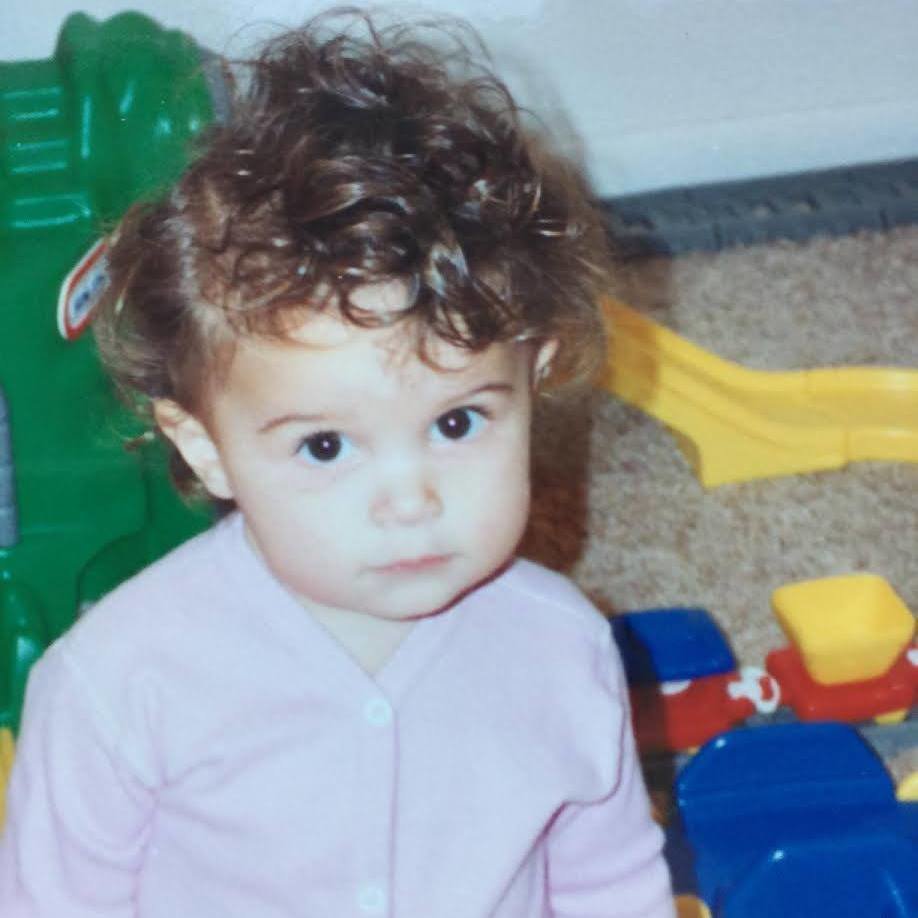I can't remember a time when I wasn't battling with anxiety, as I've had it even before I had the words to articulate what I felt.
As a kid, I closed my eyes when people spoke to me — I thought it would make me invisible. I'm sobbing in every photo with an unsuspecting mall Santa because sitting on the jolly giant's lap made me way too nervous (sorry, mom). But it was bigger than Santa — fear paralyzed me around unfamiliar people, events, and anything, really.
I became more outwardly social as I got older, but internally, I still suffered — arguably much more. I would get physically ill before taking math tests. I became depressed, without even knowing what depression is. I developed an eating disorder in high school, which I'm still grappling with the residual effects of, even in my recovery.

While it took me a long time to understand my own anxiety, it took me even longer to realize that I wasn't going to "fix" it overnight. I realized there are certain things about anxiety that all the books in the world will not tell you. While I'm not a medical professional or an "expert" by any means, I do have experience.
I know what it's like to dig yourself into an anxiety hole and claw your way out. Hell, I've been doing it for 23 years and counting. I'm getting pretty good at it — sometimes.
Here are a few truths about anxiety I wish someone had told me a long time ago:
You're not alone
When you're spiraling down an anxiety hole, it's easy to let loneliness consume you. The idea that you're suffering in solitude is certainly seductive, but ultimately untrue.
The Anxiety and Depression Association of America (ADAA) finds that anxiety disorders are the most common mental illness in the U.S. Over 40 million adults in the United States over the age of 18 have an anxiety disorder.
You're not the first or the last person to deal with anxiety — and you're not weird for having one.
Finding the cause of anxiety is actually really complicated
There are myriad reasons why a person might have anxiety, so it's hard to pinpoint one specific reason. Anxiety can be caused by genetic factors, life experience, brain chemistry, and more. It's important to listen to someone with anxiety, should they choose to open up to you — but until then, it's best not to speculate about someone else's struggle.
You can't "fix" anxiety
Anxiety is highly treatable, but there's no "cure" for it.
In addition to therapy and/or medication, there are many little things a person can do to aid their anxiety, such as yoga or meditation, drawing, painting, exercising or even laughing.
While any of these options are good ones, no one practice will be helpful to all anxiety sufferers. For example, I've found drawing and painting to be great outlets for me, while the thought of meditating (or relaxing in general) makes me scream internally.
Anxiety isn't a personal failure
It's not your fault you have anxiety — in fact, it can be passed down through generations. Many people in my family struggle with anxiety, so I've been screwed since I was just a lil' zygote.
No matter what the source of someone's anxiety is, it's not an indication that they're less of a person. In fact, I've found my struggle with anxiety has made me a more understanding person and a better listener. Who knows, maybe I'd be an insufferable asshole if I didn't have it — maybe I'd end up in the cast of "Vanderpump Rules."
The point is, just because you got dealt one shitty card doesn't mean you don't still have a great hand. (I hope that was a good cards analogy, I've always wanted to make one!)
Your anxiety doesn't define you
My anxiety is a part of who I am, like a piece of gum or dog poop eternally stuck to my soul. But it's also not all that I am.
I'm also a writer, a girlfriend, a cat mom, an excellent ping pong player, a music aficionado, a bad dancer, a coffee drinker, and a person who gives a shit about other people. I'm grateful for all these things, including my anxiety — it has enriched my life with empathy.
As a person with anxiety, I hope talking and writing about my struggle helps non-sufferers become more empathetic toward those struggling. As a writer, I hope to cut off a slice of empathy pie and serve it to anyone who wants or needs it.




